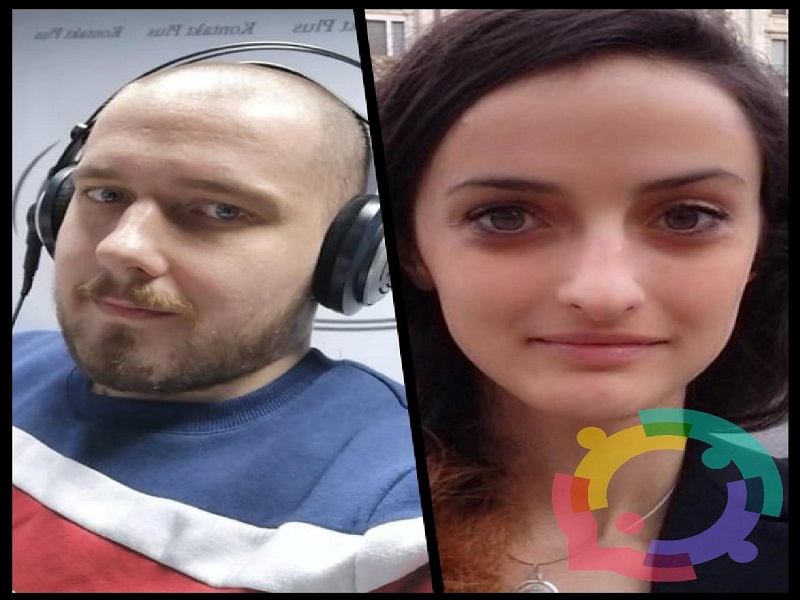Category: Blog Organizations: Alternativna , UNMIK Tags:
Vjosa and Nemanja are journalists. She works in Pristina as a reporter, he works in North Mitrovica as a radio journalist. This is the story of two young people who found their profession in the field of journalism in Kosovo.
Nemanja Jaksic (29), graduated in architecture, and whose work you can follow every day on the waves of Mitrovica's Contact Plus Radio, he sailed into journalism "quite by accident".
"There was a competition, I passed and became a part of a small 'school of journalism'. Later, I was a part of various lectures, trainings, seminars, and I also did an internship in the Belgrade agency 'FoNet' for a while," he states.
Vjosa Çerkini (27), on the other hand, revealed her love for journalism much earlier.
"My interest in journalism has always been great. I knew as a child that one day I would become a journalist," she explains.
She studied journalism at the University of Prishtina and after finishing her studies she started her journalistic career on a German TV station in Munich in 2015. Today she works for Deutsche Welle in Prishtina.
Vjosa reports mainly on politics, human rights, education, youth, unemployment, and gender equality.
"In my job, I really like having daily contact with different people. I am glad that through the videos and texts I am writing, I can give an opportunity to all people, regardless of origin, religion, age, to tell their story and raise their voice in favor of the communities living in Kosovo," Vjosa emphasizes.
Nemanja follows local events, goes out on the field, prepares articles for radio and website, works on stories related to socio-political topics, and as he says, he also likes to talk to athletes, artists and various interlocutors from northern part of Kosovo in the studio.
He is currently focusing on the topic of stray dogs in North Mitrovica, which is a big problem for both citizens and local government:
"Through this job, I want to be the first to find out and publish many things that are important for the public, to inform people about what they are most interested in at a given moment, regardless of whether it is good or, unfortunately, bad news. It is important that you do not underestimate the audience, because they are very capable of distinguishing truth from lies. That is why our job is to work for the citizens, for the news to be accurate and on the air at the right time."
In their work, they face obstacles. Journalists in Kosovo try to obtain information in various ways, institutions are often reluctant to provide answers to questions that deserve public attention, and journalists are attacked for critical texts they publish.
On the one hand, Nemanja points out the disrespect for the right to use the language as a problem he faces in his work, and that many documents and information are available to them exclusively in the Albanian language. Vjosa, on the other hand, says that it is difficult for Albanian journalists to come to the north of Kosovo, due to the barriers in the cooperation between the Albanian and Serbian communities in this area.
However, when they think about the future, both Vjosa and Nemanja see themselves in journalism.
During their work, they have had the opportunity to work with journalists from other communities in Kosovo, and both claim of having positive experiences.
Nemanja lives in the multiethnic neighbourhood "Tri solitera" and knows people from both communities who cooperate with each other and who make friends.
"Mostly, we are facing same problems when it comes to two sides like: Poverty, unemployment, questionable value system, employment according to political party (p)references, lack of perspective when it comes to young people," he said.
"Building trust between communities in Kosovo is only possible through the cooperation of citizens from all communities, so that they have the opportunity to see that we are all the same, and above all, that we are all humans. The past must not be forgotten, but we must learn from it and live together in peace and harmony. Kosovo is everyone's place," said Vjosa.




